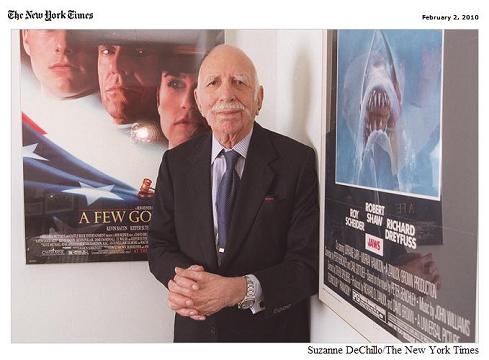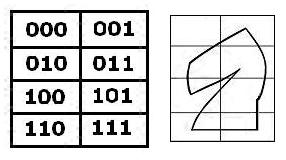Sunday, December 5, 2021
The Venn Lotus
Wednesday, June 15, 2016
Venn’s Lotus …
A search for "Purple" in this journal suggests a review of Transition,
a Log24 post of November 21, 2011. A related image —
Saturday, December 4, 2021
Baez and the Pink Lotus
Wednesday, August 4, 2021
Wednesday, July 14, 2010
The Lotus Gate*
See also a prequel to
Ramanujan’s Flowering Tree—
* “Every city has its gates, which need not be of stone. Nor need soldiers be upon them or watchers before them. At first, when cities were jewels in a dark and mysterious world, they tended to be round and they had protective walls. To enter, one had to pass through gates, the reward for which was shelter from the overwhelming forests and seas, the merciless and taxing expanse of greens, whites, and blues–wild and free–that stopped at the city walls.
In time the ramparts became higher and the gates more massive, until they simply disappeared and were replaced by barriers, subtler than stone, that girded every city like a crown and held in its spirit.”
— Mark Helprin, Winter’s Tale
Tuesday, December 15, 2020
At the Intersection…
Continues. The Chanel mandorla in the previous post
suggests a review of a more complex figure — The Venn Lotus.
Politically correct leftists may be reminded of Intersectionality.
Tuesday, December 18, 2018
Thursday, March 3, 2016
Metaphors
A rose on a Harvard University Press book cover (2014) —
A Log24 post's "lotus" (2004) —
A business mandorla (2016) —
Monday, November 21, 2011
Transition
A search for images related to Joseph T. Clark, Society of Jesus,
(author* of a quote in today's noon entry) yields—
"Heaven, I'm in heaven" — First words of "Purple Rose of Cairo"
* Very likely the same Joseph T. Clark, S. J. (1911-1989) who taught at Canisius College.
Friday, February 19, 2010
Requiem for a Wizard*
In memory of
Susanna Kaysen's father,
who died on February 8–

The Jewel
in Venn's Lotus
and
El Pato-lógico and a

Dream of Heaven
* The title of the 2004 post containing these images is "Deep Play." For some notion of the depth of the play "The Life of Carl Kaysen," see "The Kaysen Memos," pp. 271-278 in James Carroll's House of War (1st ed. May 16, 2006).
Friday, February 5, 2010
The Great Brown
Today's New York Times on a current theatrical presentation of The Great Gatsby—
"Throughout the show, the relationship between what is read and its context keeps shifting, with the real world finally giving way entirely to the fictive one."
"This fella's a regular Belasco."

David Brown, producer. Brown died on Monday.
From The Diamond as Big as the Monster in this journal on Dec. 21, 2005–
"At the still point, there the dance is.” –T. S. Eliot, Four Quartets
Eliot was quoted in the epigraph to the chapter on automorphism groups in Parallelisms of Complete Designs, by Peter J. Cameron, published when Cameron was at Merton College, Oxford.
“As Gatsby closed the door of ‘the Merton College Library’ I could have sworn I heard the owl-eyed man break into ghostly laughter.” –F. Scott Fitzgerald
Related material: Yesterday's posts and the jewel in Venn's lotus.
Thursday, January 28, 2010
The Door into Summertime
This journal on Aug. 17, 2008:

That post linked to an earlier post illustrating
the triangle formed by Harvard, by the
Mystic River at Somerville, and
by Bunker Hill Community College–

That post also linked to the Wikipedia article
Triangulation, which now states that
“Some members of the U.S. Democratic
Party, in particular the left, insist that
triangulation is ‘dead.'”
Perhaps. Click the image below
for some background.
For a view of Somerville from Harvard for Zinn,
see May 31, 2006. For a view of Summertime
for Auchincloss, see the NY Times obituary
of a political figure who died on Sunday.
On that day, this journal pictured a different
metaphor from Robert Stone’s Father Egan—
the jewel in the lotus–
Euclid’s classic construction
of the equilateral triangle
offers a different view of
the jewel in Venn’s lotus–

For a more poetic approach to
this metaphor, see Log24 on
another Sunday– July 1, 2007.
Happy birthday, Rick Warren.
Sunday, January 24, 2010
Today’s Sermon
More Than Matter
| Wheel in Webster’s Revised Unabridged Dictionary, 1913
(f) Poetry The burden or refrain of a song. ⇒ “This meaning has a low degree of authority, but is supposed from the context in the few cases where the word is found.” Nares. You must sing a-down a-down, An you call him a-down-a. O, how the wheel becomes it! Shak. |
“In one or other of G. F. H. Shadbold’s two published notebooks, Beyond Narcissus and Reticences of Thersites, a short entry appears as to the likelihood of Ophelia’s enigmatic cry: ‘Oh, how the wheel becomes it!’ referring to the chorus or burden ‘a-down, a-down’ in the ballad quoted by her a moment before, the aptness she sees in the refrain.”
— First words of Anthony Powell’s novel “O, How the Wheel Becomes It!” (See Library Thing.)

Related material:
Photo uploaded on January 14, 2009
with caption “This nothing’s more than matter”
and the following nothings from this journal
on the same date– Jan. 14, 2009—
Thursday, July 16, 2009
Thursday July 16, 2009
continued from
April 7, 2004In memory of Julius Shulman,
architectural photographer,
who died last night:
“And the lotos rose, quietly, quietly,
The surface glittered out of heart of light…”
— Four Quartets, quoted here
November 22, 2004
Wednesday, January 14, 2009
Wednesday, March 3, 2004
Wednesday March 3, 2004
Deep Play
In the previous entry, there was a reference to Carl Kaysen, former director of the Institute for Advanced Study at Princeton and father of Susanna Kaysen, author of Girl, Interrupted.
A search for further information on Carl Kaysen led to
Mark Turner, Cognitive Dimensions of Social Science: The Way We Think About Politics, Economics, Law, and Society, Oxford University Press, 2001. For a draft of this work, click here.
Turner's book describes thought and culture in terms of what he calls "blends." It includes a meditation on
Clifford Geertz, "Deep Play: Notes on the Balinese Cockfight," in Dædalus, Journal of the American Academy of Arts and Sciences, issue entitled, "Myth, Symbol, and Culture," Winter 1972, volume 101, number 1
That Turner bases weighty ruminations of what he is pleased to call "social science" on the properties of cockfights suggests that the academic world is, in some respects, even more bizarre than the mental hospital described by Kaysen's daughter.
Still, Turner's concept of "blends" is not without interest.
Here is a blend based on a diagram of the fields in which Turner and Kaysen père labor:
"politics, economics,
law, and society" (Turner)
and "economics, sociology,
politics and law" (Kaysen).
In the previous entry we abstracted from the nature of these academic pursuits, representing them simply as sets in a Venn diagram. This led to the following religious icon, an example of a Turner "blend" —

The Jewel
in Venn's Lotus.
Here is another "blend," related both to the religious material in the previous entry and to Geertz's influential essay.
From my entry for
St. Patrick's Day, 2003:
Summa Theologica
How can you tell there's an Irishman
present at a cockfight?
He enters a duck.
How can you tell a Pole is present?
He bets on the duck.
How can you tell an Italian is present?
The duck wins.
(Source: Blanche Knott,
Truly Tasteless Jokes)
Illustration for the entries
of Oct. 27, 2003:
El Pato-lógico and a

"dream of heaven."
















